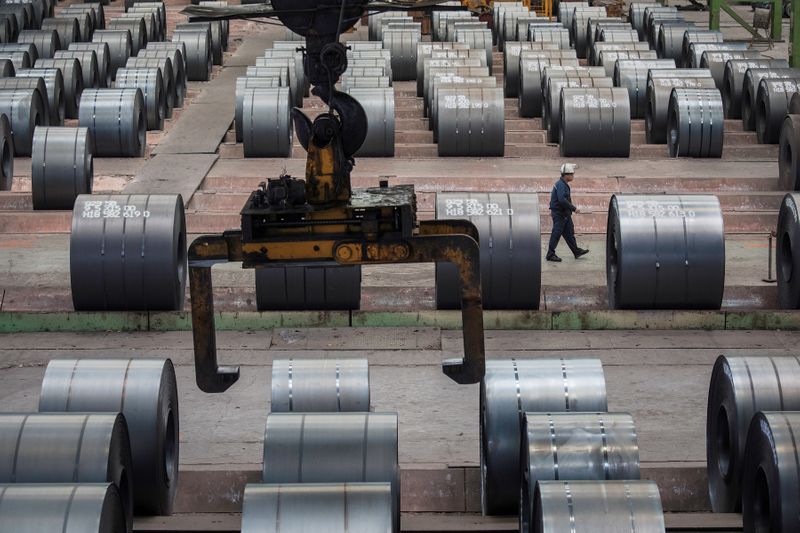BEIJING (Reuters) -China's factory gate prices beat analyst expectations to rise at their fastest annual pace since July 2018 in March in the latest sign that a recovery in the world's second-largest economy is gathering momentum.
China's producer price index (PPI) rose 4.4% in annual terms, the National Bureau of Statistics (NBS) said in a statement, far above a 3.5% rise forecast in a Reuters poll and up sharply from a 1.7% increase in February.
The inflation data is the latest indicator to point to robust economic growth in the January-March quarter. Data last week showed China's manufacturing activity expanded at the quickest pace in three months in March as factories ramped up production to keep up with improving global demand.
"Markets may become increasingly concerned about pressures from rising inflation on Beijing's policy stance, but we expect Beijing will stick to its 'no sharp policy shift' commitment," said Ting Lu, chief China economist at Nomura.
He expected annual PPI inflation to rise to around 6.0% mid-year and "moderate thereafter."
China's central bank has rolled out a raft of measures, including cuts in interest rates and reserve ratios since early-2020 to support the virus-hit economy, but it shifted to a steadier stance as the recovery solidified.
China's consumer price index (CPI) rose 0.4% from a year earlier in March, the statistics bureau said in a separate statement, beating a median forecast for a 0.3% rise in a Reuters poll and returning to inflation after two months of price falls. CPI fell 0.2% year-on-year in February.
Falling food prices, especially for pork, continued to drag on consumer inflation last month, according to a note from an NBS official released alongside the data.

China has set a modest growth target of above 6% for this year, but analysts widely expect growth of more than 8% after 2.3% growth in 2020. That was the weakest full-year reading in over 40 years as China grappled with the fallout from the COVID-19 pandemic.
Beijing has warned that uncertainties related to the pandemic, which has claimed more than 3 million lives worldwide, continue to overshadow the economic outlook.
